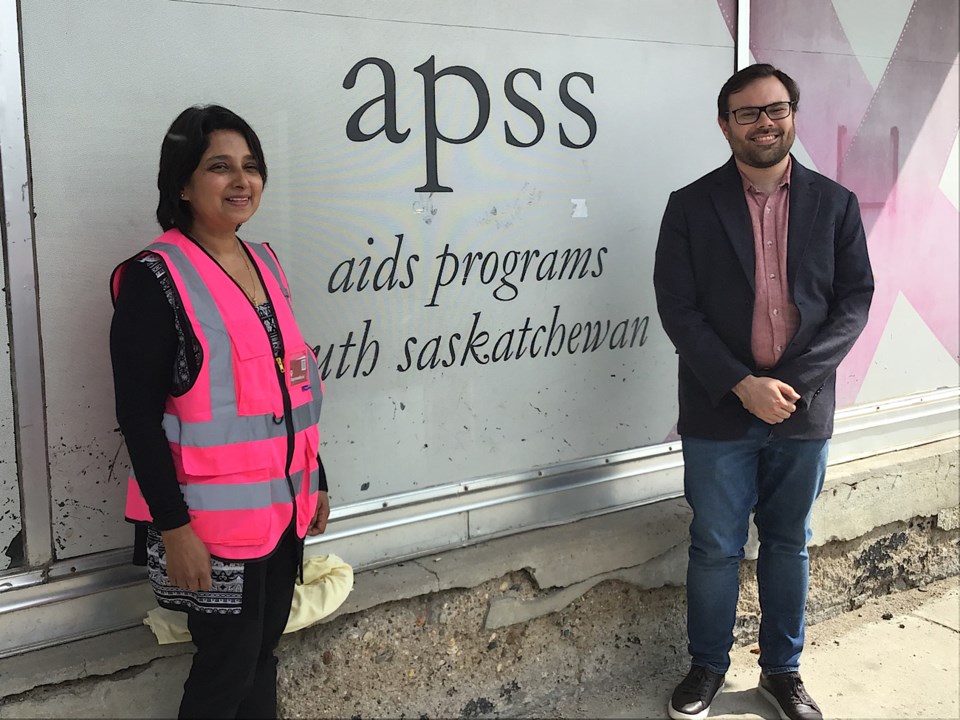REGINA - A new effort is underway in Regina to try and bring down drug overdose deaths in the city.
The program is called Project Reportneedles.ca. It was officially launched on Wednesday and is a partnership involving the University of Regina and AIDS Programs South Saskatchewan, Inc. or APSS.
What the program hopes to do is build off of the website called reportneedles.ca, which has been in use in Regina the last two and a half years. Any member of the public using that website can input their location and enter details on where they have found used needles in the city. Someone would then be send out by APSS to pick up and safely dispose of the needles.
The idea behind this latest research project is for APSS to use the inputed data to determine where needle use is the highest, and then send out supports to those areas.
“Why not focus on harm reduction in those hotspots to find out whether we can have an impact on these people who are using substances,” said Shiny Mary Varghese, executive director of APSS. She is co-lead for this project along with Dr. Andrew Eaton, of Eaton Lab and also an Assistant Professor at the University of Regina Faculty of Social Work.
The plan is to go to those hotspots on a monthly basis to provide pop up naloxone training and support groups offered in partnerships with community organizations, to provide education and awareness to people and help connect them with services such as in health care or social services.
The naloxone training would be open to any member of the public who wants to take part.
“Our hope is that the general public frequenting these spaces will be more equipped in naloxone, to offer aid and life-saving support for people potentially experiencing a drug toxicity overdose, and that people who use drugs who are not able to move around the city will be able to avail themselves of very local community support both for income and employment assistance and other practical concerns, and for peer support and community care to feel more hope and wellness, and move towards harm reduction as they use drugs in the city,” Eaton said.
The thinking is this way they can reduce overdoses. Those behind the program believe they can reduce the number of drug related deaths seen in the city and province. Statistics were cited, stating that since April 2021 they have collected over 34,400 needles.
They also point to statistics from the Saskatchewan Coroners’ office with 92 confirmed and 199 suspected drug toxicity deaths as of Aug. 1 of this year.
This project is going to run over the next two years and the intention is to adapt the program as necessary to make it as easy for people to take part.
You can no longer count on social media to deliver important news to you. Keep your news a touch away by bookmarking SASKTODAY.ca's homepage at this link.
Here's why you should bookmark your favourites.
Subscribe to SASKTODAY.ca newsletter to get our daily news to your inbox.




